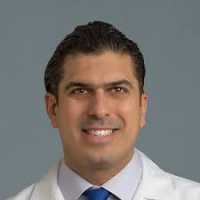
21 May NYU Study Finds Strokes More Common and Severe in Younger Patients
MedicalResearch.com Interview with:
Shadi Yaghi, MD
Assistant Professor
Department of Neurology at NYU Grossman School of Medicine
Director, Clinical Vascular Neurology Research, NYU Langone Health
Director, Vascular Neurology, NYU Langone Hospital-Brooklyn
MedicalResearch.com: What is the background for this study?
Response: Our aim was to determine the characteristics of imaging proven ischemic stroke in the setting of COVID-19 infection and compare them to those of ischemic stroke but without COVID-19 infection.
MedicalResearch.com: What are the main findings?
Response: The rate of imaging proven ischemic stroke in our patient population was 0.9%. Patients with ischemic stroke and COVID-19 were younger, had more severe strokes, were more likely to have stroke of unknown cause, had higher peak d-dimer levels, and were more like to have died by the time of hospital discharge.
MedicalResearch.com: What recommendations do you have for future research as a result of this work?
Response: Future research is needed to confirm our findings and to test the safety and efficacy of anticoagulation therapy for stroke and thrombotic event prevention in patients with COVID-19 infection and evidence of elevated d-dimer levels.
No relevant disclosures. My previous department received funding from Medtronic due to my work in outcome adjudication for the Stroke-AF trial.
Citation:
SARS2-CoV-2 and Stroke in a New York Healthcare System
Shadi Yaghi, MD, Koto Ishida, MD, Jose Torres, MD, Brian Mac Grory, MB, BCh, BAO, MRCP, Eytan Raz, MD, Kelley Humbert, MD, Nils Henninger, MD, PhD, Dr med, Tushar Trivedi, MD, Kaitlyn Lillemoe, MD, Shazia Alam, MD, Matthew Sanger, MD, Sun Kim, MD, Erica Scher, RN, MPH, Seena Dehkharghani, MD, Michael Wachs, MHA, Omar Tanweer, MD, Frank Volpicelli, MD, Brian Bosworth, MD, Aaron Lord, MD, Jennifer Frontera, MD
[subscribe]
[last-modified]
The information on MedicalResearch.com is provided for educational purposes only, and is in no way intended to diagnose, cure, endorse or treat any medical or other condition. Always seek the advice of your physician or other qualified health and ask your doctor any questions you may have regarding a medical condition. In addition to all other limitations and disclaimers in this agreement, service provider and its third party providers disclaim any liability or loss in connection with the content provided on this website.
Last Updated on May 21, 2020 by Marie Benz MD FAAD
